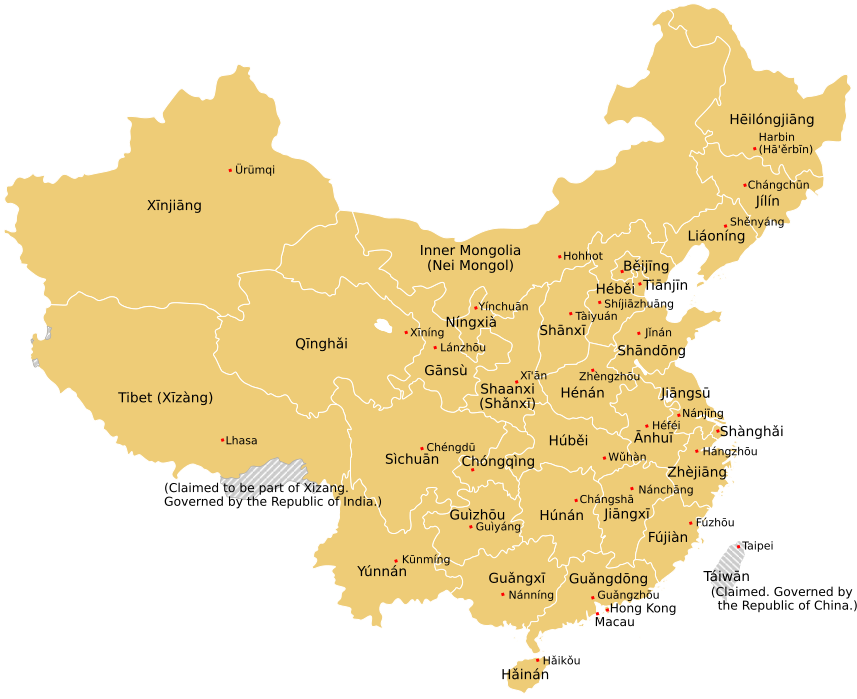The world will face economic challenges on multiple fronts in 2016. As the U.S. Federal Reserve begins its monetary tightening, Europe is struggling to manage migrant and debt crises, China’s financial stability is in doubt, and emerging economies are increasingly fragile.
The global economy “could be doing much worse,” writes the Harvard economistKenneth Rogoff, who is a senior fellow at the Council on Foreign Relations (CFR). Low oil prices and weak currencies are keeping the European and Japanese economies afloat, but Rogoff warns of “a slowing Chinese economy, collapsing commodity prices, and the beginning of the U.S. Federal Reserve’s rate-hiking cycle.”
Emerging economies like Brazil, South Africa, Thailand, and Turkey, rather than China, will be the real sources of concern in 2016, argues U.C. Berkeley’s Barry Eichengreen. With their high levels of short-term debt, these countries are vulnerable to currency crisis, “potentially leading to economic collapse.”
For CFR’s Varun Sivaram, new investments announced at the Paris climate talks are reason for optimism in the energy sector. In particular, the $20 billion earmarked for clean-energy research and development “could make it more likely for breakthrough technologies to emerge.”
In the United States, meanwhile, steady GDP and job growth has been constrained by weak productivity gains, writes the American Enterprise Institute’s James Pethokoukis. Without increased productivity delivering higher living standards, the United States could face decades of “unhealthy economic populism.”
Europe continues to face the risk of debt crises, writes CFR’s Robert Kahn, but the most dangerous economic risk for the continent in 2016 is “a growing populist challenge from both the Left and Right,” which could create economic-policy uncertainty and constrain policymakers.
Kenneth S. Rogoff, senior fellow for economics, Council on Foreign Relations: The best thing that can be said about the global economy as 2016 begins is that it could be doing much worse.
In Europe, Greece’s Syriza government—closely adhering to the advice of left-leaning U.S. economists—has flirted with pushing the Greek economy off a cliff. The country’s membership in the euro zone survived, however, even if the Greek government needlessly squandered both precious time and tens of billions of dollars.
Europe, like Japan, is also facing profound existential problems around aging populations, difficulty in absorbing refugees and immigrants, and slow productivity growth due to lack of structural reform. As 2016 dawns, low oil prices and weak currencies are continuing to keep both economies on positive—though not exactly vigorous—growth trajectories.
Meanwhile, the Chinese government suffered a major dent in its credibility by badly mishandling a collapsing stock-market bubble, raising questions about how well it will be able to manage the ongoing shift in its economy to slower, but more sustainable, growth. Although the government has managed to alleviate any immediate sense of crisis, the challenges in 2016 remain formidable.
Between a slowing Chinese economy, collapsing commodity prices, and the beginning of the U.S. Federal Reserve’s rate-hiking cycle, many emerging-market economies have become quite fragile, notably Russia and Brazil. Twenty years ago, with inflexible exchange rates and massive foreign-currency debt, the kind of duress these countries are experiencing now would have inevitably led to financial crisis. Now, with flexible exchange rates and most government debt denominated in local currency, their economies are more robust: They are suffering deep recessions, yes, but not yet the start of “lost decades.” However, with Brazil’s multibillion-dollar corruption scandal deepening by the day and plummeting oil prices undermining Russia’s fiscal sustainability, 2016 will further test these economies.
Can the U.S. economy continue to recover even if growth elsewhere is tepid? For now, it seems that advanced economies will continue to heal from the financial crisis, albeit still suffering from hangovers due to high debt levels and post-crisis trauma, especially in Europe. Still, 2016 promises to be anything but a quiet year.
Barry J. Eichengreen, George & Helen Pardee Professor of Economics & Political Science, University of California, Berkeley: It will be another rough year for emerging markets in 2016. But unlike 2015, when investors were fixated on instability in Chinese markets and the bungled devaluation of the renminbi, in 2016 they will realize that the situation in China is under control and the real problems are elsewhere.
Financial crises erupt when a country has two problems at once: financial weakness and political weakness. China has financial weaknesses, to be sure, in the balance sheets of state-owned enterprises, regional government debt, and the shadow banking system. But there is little reason to question the government’s capacity to intervene if something goes seriously wrong, particularly given the country’s nearly $3.5 trillion in foreign-exchange reserves. These can be used to support the exchange rate if the renminbi shows undue weakness. In an extreme situation, the authorities can resort to direct controls on financial transactions, and they have no reluctance to use them.

Every unhappy emerging market is unhappy in its own way.
The situation is different in other emerging markets like Brazil, South Africa, Thailand, and Turkey. Like China, these countries are financially vulnerable. Their corporations are saddled with large amounts of short-term, dollar-denominated debt which becomes increasingly difficult to service as the dollar strengthens, as it is again likely to do in 2016. In turn, worries about corporate defaults—which damage fiscal accounts either directly by prompting bailouts or indirectly by depressing tax revenues—can cause investors to flee. Since these countries lack the ability to impose controls on financial transactions, the result could be a currency collapse, potentially leading to economic collapse.
To avoid that outcome, a strong government could cut public spending to restore confidence and allow the central bank to raise interest rates in order to attract capital back to the economy. In Brazil, however, President Dilma Rousseff’s government has so far failed to push through the necessary, but painful, fiscal measures. The central bank has hesitated to raise its main interest rate, the Selic, for fear it would erode public support for the administration. Instead, it has relied on unsustainable intervention in the foreign-exchange market.
That's not even the half of it > http://tinyurl.com/ztfmnga








